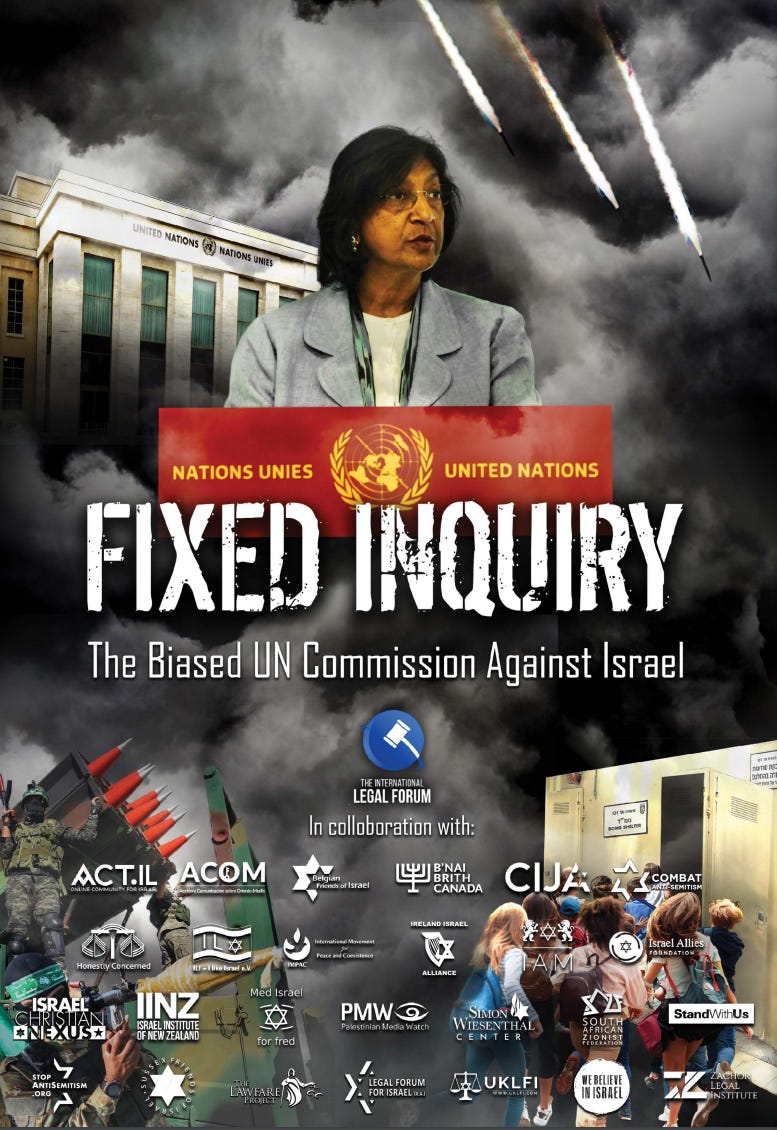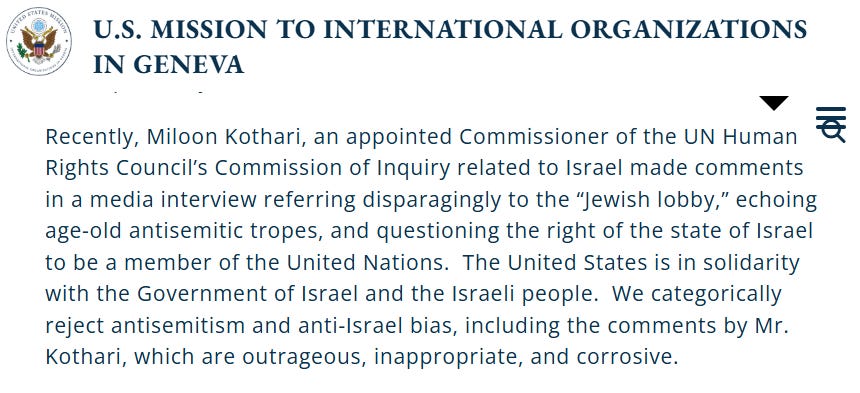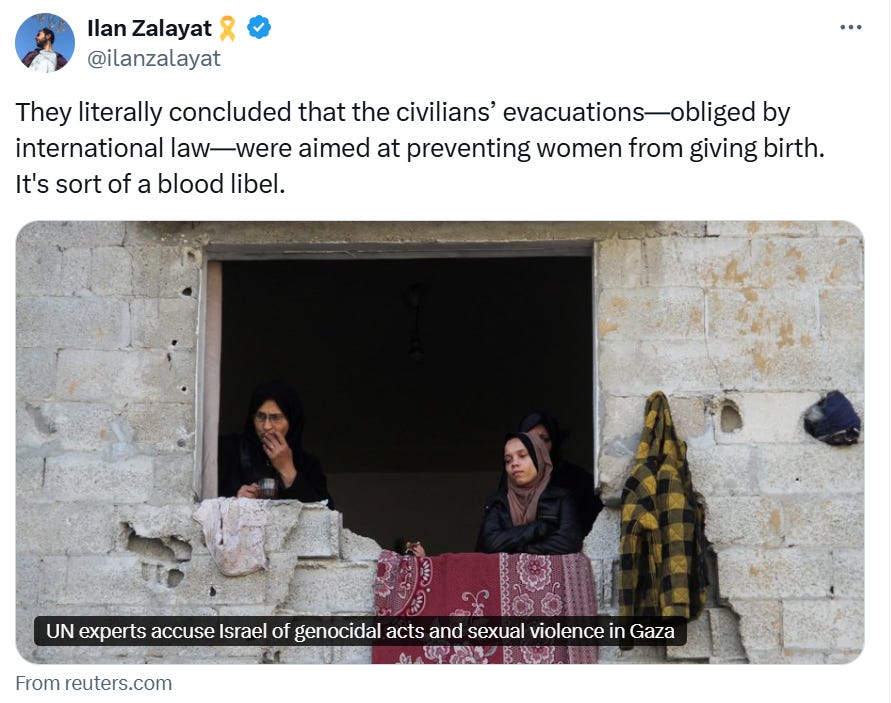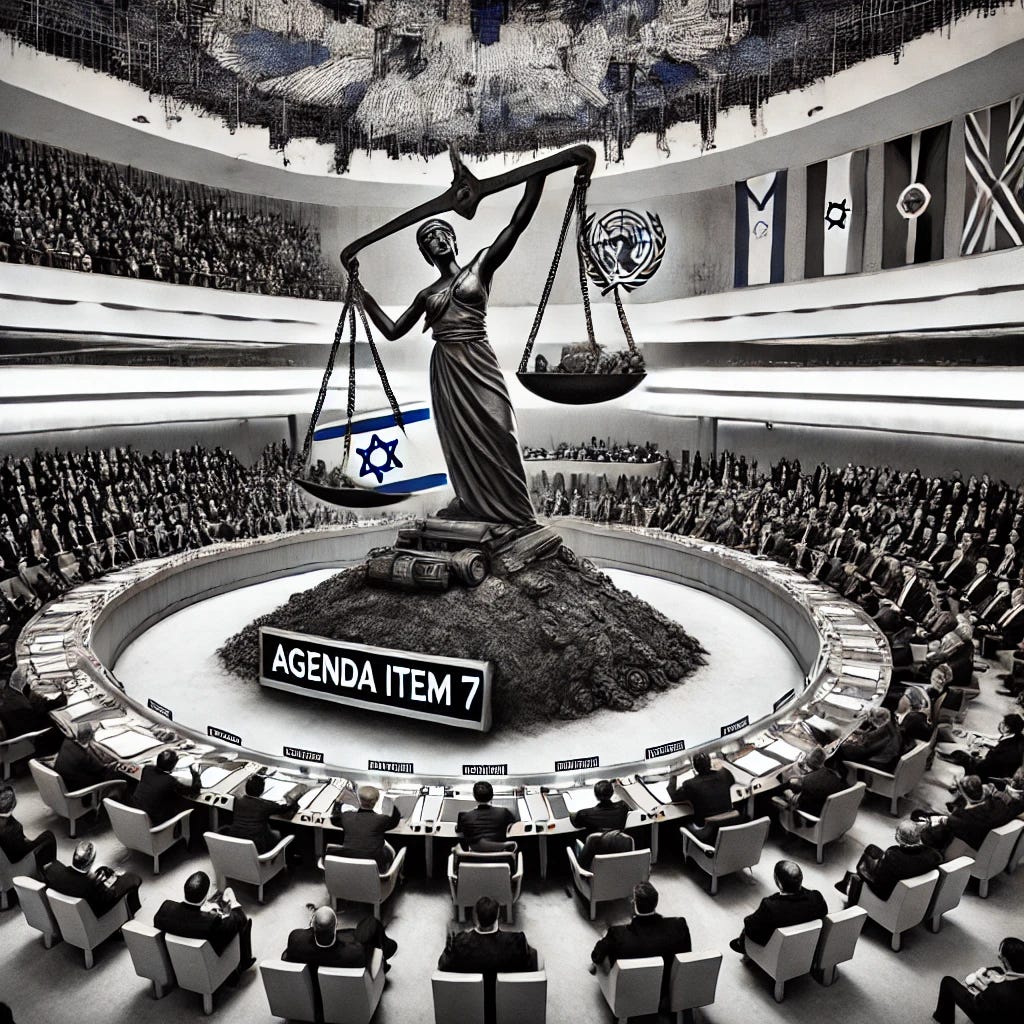The UN's "Fixed Inquiry" Accuses Israel of Gender-based Violence in Gaza
The new report, published Thursday by the UN's Commission of Inquiry targeting Israel, has been met with widespread skepticism and criticism for its flawed methodology and biased commission members
The United Nations Independent International Commission of Inquiry (COI) on the Occupied Palestinian Territory, including East Jerusalem, and Israel, has once again found itself at the center of controversy following the release of its latest report. The document, which accuses Israel of widespread gender-based violence, has been met with skepticism, particularly given the longstanding allegations of bias against the Commission’s leadership.
A Troubling Track Record
The COI’s latest report, titled “More than a Human Can Bear”, details allegations of sexual violence, reproductive harm, and other gender-based abuses purportedly committed by Israeli forces. Yet, critics argue that the findings are part of a pattern within the UN Human Rights Council (UNHRC), which has long been accused of disproportionate scrutiny of Israel while failing to address comparable abuses elsewhere.
Concerns about the integrity of the COI are not new. The Fixed Inquiry report, a detailed critique of the UNHRC’s practices published in 2022 by over 25 civil society organizations, highlights systemic bias within the UN mechanisms tasked with investigating Israel. According to the report, the COI was established under a mandate that presupposed Israel’s guilt, effectively rendering its investigations a foregone conclusion.

The Questionable Role of Navi Pillay
A significant point of contention lies with the chairperson of the COI, former UN High Commissioner for Human Rights Navi Pillay. Pillay has a long history of controversial statements regarding Israel, having previously accused the country of practicing apartheid and openly supported the Boycott, Divestment, and Sanctions (BDS) movement. The Fixed Inquiry report further outlines her involvement in events that promoted inflammatory rhetoric against Israel and her affiliations with organizations linked to Palestinian terror groups. Such a track record, critics argue, calls into question her ability to oversee an impartial investigation.
Source for video: UN Watch
Pillay’s past role in the Durban Conference, which became infamous for antisemitic rhetoric, further casts doubt on her neutrality. Multiple democratic nations, including the United States and Canada, boycotted subsequent Durban conferences due to their extreme anti-Israel agenda. Her leadership of this latest COI thus fuels speculation that the Commission was never intended to conduct a fair assessment.
Bias in the Commission’s Composition
In addition to Pillay, the COI includes commissioners Miloon Kothari and Chris Sidoti, both of whom have previously made remarks widely interpreted as prejudicial against Israel. Kothari has accused Israel of ethnic cleansing, while Sidoti has been linked to organizations advocating for sanctions and legal action against Israel.
Concerns about Kothari’s impartiality were further amplified when he made antisemitic remarks in a 2022 interview, suggesting that social media was controlled by the Jewish lobby, a statement that was widely condemned, including by the U.S. Mission to Geneva, which called them antisemitic as well as “outrageous, inappropriate, and corrosive.”

Allegations of Serious Flaws in the Report
Critics argue that a glaring issue with the COI’s new report is its failure to contextualize the conflict’s broader realities. For example, some have pointed out that the report focuses heavily on allegations against Israeli forces but makes little mention of Hamas’ sexual crimes against Israeli hostages and the well-documented use of sexual violence, forced marriages, and gender-based oppression within Gaza.
Additionally, critics argue that the COI’s methodology lacks transparency. The report heavily relies on anonymous testimony and unverifiable sources while providing minimal forensic or corroborative evidence to substantiate its claims. The Israeli government has strongly denounced the report, with Israeli officials labeling its allegations of genocidal attacks on women as "one of the worst cases of blood libel the world has ever seen."
Avi Abraham Benlolo, Founder & CEO, The Abraham Global Peace Initiative, posted on X that “AGPI strongly condemns a UN accusing Israel of genocidal acts, sexual violence in Gaza war. Clearly, the @UN is trying to create moral equivalence with the rapes by Hamas on Oct 7. Sadly, this is not a first but we are not blind.”
Ilan Zalayat, a fellow at the Institute for National Security Studies (INSS) and Moshe Dayan Center for Middle Eastern and African Studies (MDC), posted that the COI’s report “literally concluded that the civilians’ evacuations—obliged by international law—were aimed at preventing women from giving birth. It's sort of a blood libel.”

The day before the report was published, Israeli Minister for Social Equality and as Minister for Women's Empowerment May Golan condemned the UN during the United Nations Commission on the Status of Women, stating "your hollow resolutions and selective blindness, abandoning Christian girls, Jewish women, and Muslim children who dare to dream beyond oppression."
Accusations of Bias in the UN Human Rights Council
One of the clearest indications of the UNHRC’s systemic bias against Israel is the existence of Agenda Item 7, the only permanent item on the Council’s agenda that is dedicated to a single country: Israel. Established in 2006, Agenda Item 7 ensures that Israel is scrutinized at every UNHRC session, regardless of the global human rights situation. No other nation has such an item dedicated to it. Israel and several Western democracies have repeatedly condemned Agenda Item 7 as inherently biased and counterproductive to the Council’s mission of universal human rights.
The watchdog group UN Watch has consistently criticized Agenda Item 7, highlighting its alleged discriminatory nature. The organization has noted that this agenda item is a tool used by countries with poor human rights records to deflect attention from their own abuses by focusing on Israel. The U.S. government withdrew from the UNHRC in 2018, citing bias against Israel and the council’s failure to address other human rights violations. It rejoined in 2021 under the Biden administration, aiming to push for reforms rather than disengage. In February 2025, President Trump withdrew from it again, stating that “I've always felt that the U.N. has tremendous potential. It's not living up to that potential right now.”
A Report That Demands Greater Scrutiny
Overall, critics argue that while allegations of gender-based violence in conflict should be thoroughly investigated, the credibility of the COI’s latest report is severely compromised due to its commissioners’ well-documented biases and the broader pattern of UNHRC prejudice against Israel. They contend that any legitimate investigation into human rights violations must adhere to the principles of impartiality, transparency, and due process—qualities they claim this COI fails to uphold.
Critics further assert that as the international community intensifies its scrutiny of institutional biases, the UNHRC should be held accountable for ensuring its investigations are conducted with fairness and integrity. Until significant reforms are made, they argue, reports like this one will likely continue to be perceived as politically motivated rather than genuine efforts to uphold human rights.




the only gender based violence is happening by IDF soldiers murdering and raping women and children in Gaza https://www.cbsnews.com/news/un-report-israel-idf-genocidal-acts-sexual-violence-gaza-west-bank/